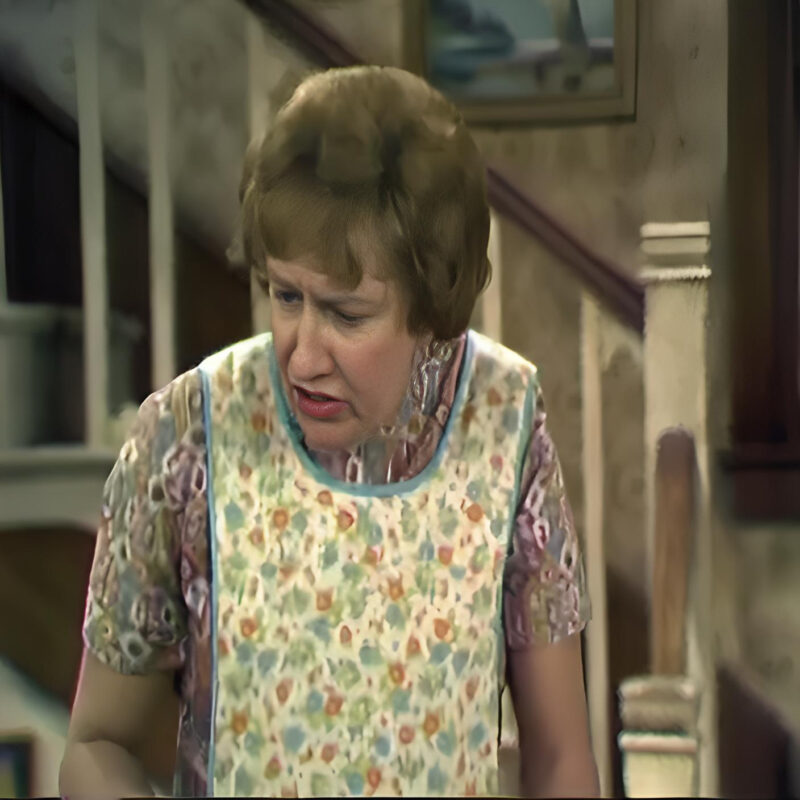
Audiences were captivated by “All in the Family,” Norman Lear’s iconic sitcom featuring the unforgettable bigot Archie Bunker (Carroll O’Connor), his patient wife Edith (Jean Stapleton), their daughter Gloria (Sally Struthers), and Gloria’s liberal husband, Michael “Meathead” Stivic (Rob Reiner), navigating life under one roof amidst constant discord. As a child, I fondly remember watching reruns of “All in the Family” on Nick at Nite, a testament to its enduring legacy fueled by a nine-season run and its subsequent spin-off, “Archie Bunker’s Place.”
The transition to “Archie Bunker’s Place” was spurred by Jean Stapleton’s decision to depart from the main series during its ninth season. In a 1979 interview with the Detroit Free Press (via MeTV), Stapleton expressed her gratitude for the role of Edith but felt it was time to explore other opportunities, fearing she might be forever typecast. Her departure presented a pivotal moment for the show: should it continue without its beloved matriarch or conclude its storied run?
Norman Lear, the series’ creator, initially advocated for its conclusion, feeling that continuing without Edith would compromise the show’s integrity. However, Robert Daly, then vice president of CBS Television, persuaded Carroll O’Connor to carry on, citing the show’s immense popularity and enduring appeal. A compromise was reached: the series would be rebranded as “Archie Bunker’s Place,” shifting focus to the bar Archie purchased in the eighth season of “All in the Family.” While the Bunker household remained a backdrop, the bar became the primary setting.
To ease the transition, Jean Stapleton made several guest appearances before her character, Edith, was written off through an off-screen death from a stroke. Archie grappled with profound grief on-screen, marking a poignant departure from the show’s original dynamic. Despite the absence of Edith, “Archie Bunker’s Place” persisted for four seasons, albeit without achieving the same critical acclaim as its predecessor. Nevertheless, it underscored the enduring popularity of Archie Bunker and his comedic escapades, even in a changed narrative landscape.
The legacy of “All in the Family” and its subsequent spin-off highlights its ability to resonate with audiences across generations, navigating social issues with humor and candor that defined an era of television storytelling. Archie Bunker remains an indelible figure in television history, a testament to the show’s lasting impact and cultural relevance.
